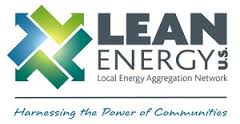Community Choice Aggregation and Why It Is Not the Right Choice for Torrance
 At a recent Council meeting Councilman Tim Goodrich made a point to remind voters that he ran on a “back to basics” platform which he defined as fixing streets and sidewalks and “getting back to the core government services.” He then went on to say that improving roads was the # 1 issue facing Torrance noting that the pavement condition index of Torrance roads is 58 – well below the ideal standard of 80.
At a recent Council meeting Councilman Tim Goodrich made a point to remind voters that he ran on a “back to basics” platform which he defined as fixing streets and sidewalks and “getting back to the core government services.” He then went on to say that improving roads was the # 1 issue facing Torrance noting that the pavement condition index of Torrance roads is 58 – well below the ideal standard of 80.
How ironic then that the very next week the Council would take on Community Choice Aggregation (CCA) – a cause championed and brought forward by the very same Goodrich. There is much room for reasonable minds to differ on the advance of a CCA, but one thing for certain is that implementing a CCA within Torrance is about as far from the “Back to Basics” approach that Goodrich supposedly believes in as you can possibly imagine.
Similar to the Affordable Care Act, the formation of a CCA is one of those issues that ignite firebrands from both the left and the right. In that heated atmosphere, the debate often gets bogged down in the rhetorical quagmire of capitalism versus socialism and conservatism versus progressivism.
Narratives describing less than scrupulous benefactors on both sides of the issue further complicate the debate. On one hand you have the large monopolistic investor owned utilities (IOU’s) that have continued to gouge consumers through cozy relationships with politicians and government regulators. On the other side there exist enterprising green energy scammers orchestrating the CCA’s to line their pockets at taxpayer expense.
Given these two extremes, and the compelling evidence that can be presented by both sides, it is easy for the regular trusting taxpayer that just wants to power his home at an affordable price while not contributing to the earth’s demise feeling stuck between the proverbial rock and a hard place.
So what is a CCA exactly? Essentially it is a government created and controlled middle-man that brokers energy contracts on behalf of consumers. Instead of paying Southern California Edison (SCE) directly Torrance residents would pay the CCA. The CCA would then leverage the buying power gained by pooling consumers to purchase energy contracts. The hope is that the CCA would then use this buying power to purchase energy contracts at an affordable price from sources that provide cleaner energy than SCE would normally offer.
 The choice part of a CCA is that instead of just paying the one rate afforded by SCE, consumers could choose from various cleaner options to meet their energy needs. Marin Clean Energy (MCE), a CCA touted in the City staff report as a successful model, offers consumers three choices: Light Green (50% renewable), Deep Green (100% renewable), or Sol Shares (100% through local solar farm). As to be expected, the greener options typically would cost the consumer significantly more. In the MCE plan, the Sol Shares rates are 30% higher than the rates paid by those that choose the Deep Green option.
The choice part of a CCA is that instead of just paying the one rate afforded by SCE, consumers could choose from various cleaner options to meet their energy needs. Marin Clean Energy (MCE), a CCA touted in the City staff report as a successful model, offers consumers three choices: Light Green (50% renewable), Deep Green (100% renewable), or Sol Shares (100% through local solar farm). As to be expected, the greener options typically would cost the consumer significantly more. In the MCE plan, the Sol Shares rates are 30% higher than the rates paid by those that choose the Deep Green option.
The promise of the CCA is alluring. Proponents claim that it will bring cleaner energy to communities at more affordable rates. As a government run not-for-profit, instead of paying dividends to shareholders like IOU’s they claim the CCA will be able to reinvest profits into developing local green energy sources that could provide jobs and power to local communities.
One of the downsides is that if the CCA is not successful that taxpayers will likely be caught holding the bag. In a cautionary tale, the staff report indicates that the CCA in San Francisco was suspended after expending $4.1 million dollars. Another report indicated that in the SF example electricity rates were set to increase by nearly 5 times.
There are other, possibly greater, causes for alarm. With our current model, we supposedly have government regulators working on our behalf to ensure entities like SCE are not behaving badly. Whether those regulators are doing a good job is definitely a question up for debate, but with a CCA it is not clear what regulation, if any, they would have. Rates under a CCA would not be regulated by a government agency; instead they would be set by the CCA’s Board of Directors – which typically is comprised of locally elected officials. In addition, how are we to know whether the energy purchased by a CCA is actually cleaner? And who’s to keep the CCA from paying their directors and consultants outlandish salaries and benefits?
Those are exactly the concerns raised by one energy expert with regard to the MCE CCA. In startling allegations, energy expert Jim Phelps has claimed that MCE has actually cost consumers more while providing energy that is less clean than PG&E (the local IOU) was providing. According to his analysis, the primary beneficiaries of MCE, which has 22 employees according to the City staff report, appears to be the directors and consultants of the organization that are bilking taxpayers out of millions of dollars a year.
I am sympathetic to the need to provide increased energy options for the consumer, but perhaps unlike Goodrich I actually do believe that the best thing for Torrance right now is a “Back to Basics” approach to city government. That’s why I oppose Community Choice. With an uncertain economy, a strained City budget, and roads still in disrepair now is not the time to embark upon a risky government run enterprise that strays so far from a core city government service.
 On this issue, I found a memo released by Shaun Elliot, one of the leading proponents of CCA’s and the Director of LEAN Energy US, very convincing. In that memo, he claimed that AB 2145 would “cripple CCA in California by requiring local programs to be opt-in vs. opt-out.” If the primary threat to an initiative called Community Choice is that people would have to actually “choose” it over their current IOU Company, then taxpayers should take heed that maybe it is not a program that people should let a few politicians choose for them.
On this issue, I found a memo released by Shaun Elliot, one of the leading proponents of CCA’s and the Director of LEAN Energy US, very convincing. In that memo, he claimed that AB 2145 would “cripple CCA in California by requiring local programs to be opt-in vs. opt-out.” If the primary threat to an initiative called Community Choice is that people would have to actually “choose” it over their current IOU Company, then taxpayers should take heed that maybe it is not a program that people should let a few politicians choose for them.
The sad part is that most people in Torrance will not fully understand what CCA is all about and it will be sold to them as cleaner and cheaper energy. There are way bigger issues in Torrance then CCA. Mr Goodrich please stick to the basics, but again I doubt that’s what your true agenda is. It’s time to pay back his backers.
Could you please provide a date for “a recent Council meeting” and “the very next week”? I’d like to review the video of the Council meetings referenced.
Dec 02 and Dec 09
Thank you.
It appears Torrance is not the only city being solicited for support in establishing a CCA: http://SouthBayCleanPower.wordpress.com/
Thank you for this excellent analysis, Clint.
Lots of organized information about the CCA movement and how proponents push these (misrepresented) programs onto elected officials. I read the linked book and then found this website so here’s a link you should follow:
http://iagenda21.com/wp-content/uploads/2017/12/CCA-Report-ACSC-Internet-Sample-2.pdf